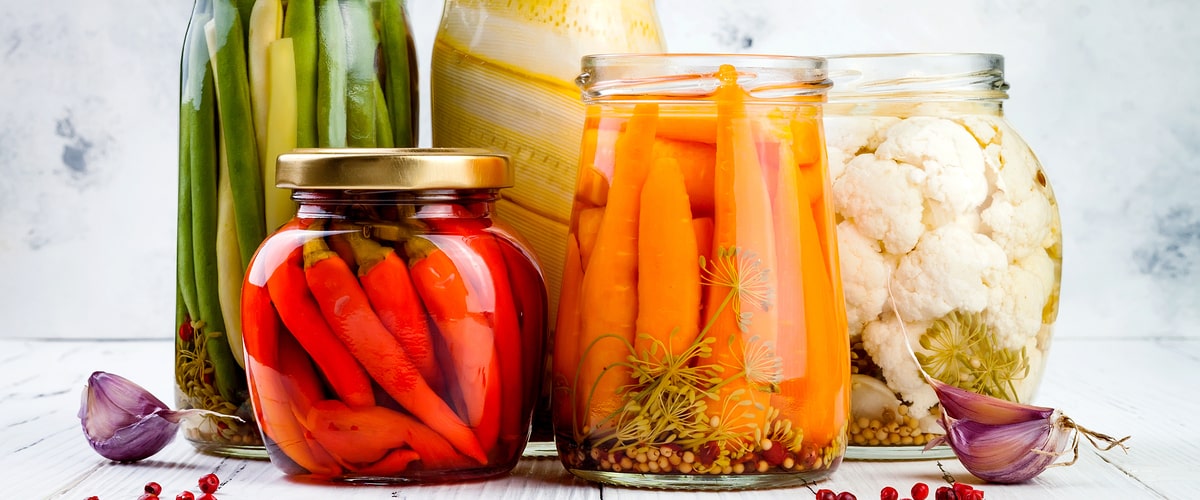The Power of Fermented Foods: Exploring Kimchi and Sauerkraut

In recent years, fermented foods have gained significant attention for their remarkable health benefits and unique flavors. Among the most celebrated of these are kimchi and sauerkraut. These tangy, probiotic-rich staples not only enhance the taste of meals but also promote gut health and overall well-being. Let’s delve into the world of fermented foods and discover why kimchi and sauerkraut deserve a spot on your plate.
What Are Fermented Foods?
Fermented foods are created through a process called lacto-fermentation, where natural bacteria convert sugars into lactic acid. This process preserves the food while enhancing its nutritional profile and introducing probiotics, beneficial bacteria that support gut health. Fermented foods have been a part of human diets for centuries, cherished for their long shelf life, rich flavors, and health benefits.
Kimchi: A Korean Superfood
Kimchi is a traditional Korean dish made from fermented vegetables, most commonly Napa cabbage and radishes, seasoned with a mix of chili powder, garlic, ginger, and fish sauce. It’s not just a side dish but a cultural cornerstone in Korea, served with almost every meal.
Health Benefits of Kimchi
- Rich in Probiotics: Kimchi is loaded with beneficial bacteria that promote a healthy gut microbiome, aiding digestion and improving nutrient absorption.
- Boosts Immunity: Packed with antioxidants and vitamins like A and C, kimchi strengthens the immune system and helps fight inflammation.
- Supports Weight Loss: Low in calories but high in fiber, kimchi keeps you feeling full and supports a healthy metabolism.
- Heart Health: Research suggests that the probiotics in kimchi can help lower cholesterol levels and reduce the risk of cardiovascular diseases.
How to Enjoy Kimchi
Kimchi’s versatility makes it an excellent addition to various dishes. Here are some ways to incorporate it into your meals:
- Add it to rice bowls or stir-fries for a flavorful kick.
- Use it as a topping for tacos or burgers.
- Stir it into soups or stews for a tangy, spicy twist.
- Eat it straight as a side dish to complement grilled meats or tofu.
Sauerkraut: A European Classic
Sauerkraut, which translates to “sour cabbage” in German, is a simple yet powerful fermented food. Made from finely shredded cabbage and salt, this dish has been a staple in European cuisines for centuries.
Health Benefits of Sauerkraut
- Gut Health: Like kimchi, sauerkraut is rich in probiotics that support digestion and help maintain a healthy gut flora.
- Nutrient Dense: Sauerkraut is a good source of vitamin C, vitamin K, and iron, all of which are essential for immune function and bone health.
- Improves Digestion: The fiber in sauerkraut aids in regular bowel movements and promotes a healthy digestive system.
- May Reduce Stress: Emerging studies suggest that gut health is linked to mental well-being. Consuming probiotic-rich foods like sauerkraut may help alleviate stress and improve mood.
How to Enjoy Sauerkraut
Sauerkraut’s tangy flavor pairs well with many dishes. Here are some ideas:
- Serve it as a side with sausages or roasted meats.
- Add it to sandwiches or wraps for extra crunch and zest.
- Mix it into salads for a probiotic boost.
- Use it as a topping for baked potatoes or grain bowls.
Kimchi vs. Sauerkraut: Which One Should You Choose?
While both kimchi and sauerkraut are excellent sources of probiotics, their flavors and nutrient profiles differ slightly. Kimchi is spicy, complex, and often includes additional vegetables and seasonings, making it a dynamic ingredient in various cuisines. Sauerkraut, on the other hand, is milder and more straightforward, making it a versatile option for those who prefer simpler flavors.
Why Not Both?
Instead of choosing one, incorporate both into your diet to enjoy their unique tastes and health benefits. They complement different cuisines and add variety to your meals.
Tips for Incorporating Fermented Foods Into Your Diet
- Start Small: If you’re new to fermented foods, begin with small servings to allow your gut to adjust.
- Pair with Other Foods: Fermented foods can be quite strong in flavor. Pair them with neutral foods like rice, bread, or roasted vegetables.
- Choose Raw, Unpasteurized Options: Look for products labeled “live” or “raw” to ensure they contain active probiotics.
- Try Homemade: Making your own kimchi or sauerkraut can be a fun and rewarding experience. Plus, it allows you to customize flavors to your liking.
Final Thoughts
Fermented foods like kimchi and sauerkraut are more than just delicious—they’re powerful allies for your health. By incorporating these probiotic-rich foods into your diet, you can support your gut, boost your immune system, and enhance your overall well-being. Whether you’re a fan of the bold, spicy flavors of kimchi or the tangy simplicity of sauerkraut, there’s no denying the benefits of these fermented wonders. So why not give them a try and experience the power of fermentation for yourself?



